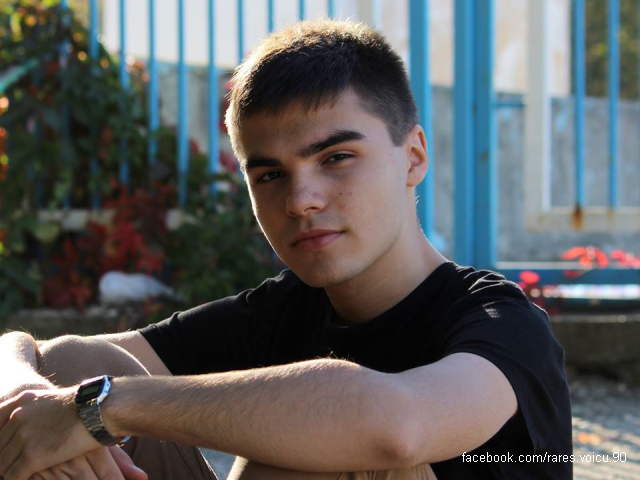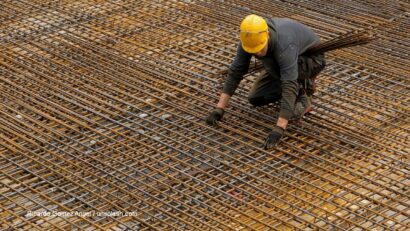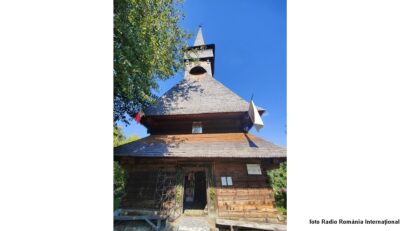Romania supports the idea of involving children in decision-making
An initiative aimed at increasing children participation in the process of decision-making

Monica Chiorpec, 27.03.2019, 12:53
The future belongs to the young people and this reflects in the social
policies promoted by the European Union. Holding the rotating presidency of the
Council of the EU, Romania supports the idea of getting children involved in
decision making.
Very often,
children and teenagers are unable to make their voice heard in public and to
stand out for their opinions. Some of them though, overcome their fears and
become representatives of a generation. This is the case of Rares Voicu, a
16-year old teenager with the Nicolae Iorga High School in Braila, who
represents his colleagues and is a Junior Ambassador of Romania to the EU:
Throughout the years, both
inside and outside school, I felt that my voice was not listened to, when I was
trying to make my opinions known. I must admit that, most times, I did nothing
to change that and I chose not to react. Things changed two years ago, when I
ran for the Students’ County Council, whose motto was Be Your Colleagues’
Voice. I was terrified at first. Up to that point I had problems with making my
own voice heard, and I did not know how, all of a sudden, I was supposed to be
the voice of tens of thousands of students. Little by little, my fears disappeared
and I learned to be more vocal, tell my opinions out loud and be more firm when
it comes to voicing them. To my great surprise, I started to be listened to. I
could not understand what had happened and why, all of a sudden, my opinion started
to matter. And then I realized that was because I was part of the Students’
County Council. I had an entire platform supporting me, which allowed me to
speak on behalf of my colleagues with a certain guarantee that I would also be
taken seriously.
To Rares
Voicu, what is essential is for Europe to take into consideration the opinions
of its youngest citizens. Rares believes that the right to consultation must be
defended and promoted in all the EU member states:
I myself have had this chance, but there are
millions of children facing the same problem, although our right to be
consulted and to participate is among our fundamental rights, as it is
stipulated in the Convention on the Rights of the Child. We are here to speak
on behalf of the Romanian and European children. We, as junior ambassadors,
will draw up Bucharest Children’s Declaration, which is a call on all European
leaders, and not only. Given the current social background, it’s our duty, as
citizens in the making, to take a stand and to fight for our rights, children’s
rights. We want all children in the EU to benefit from the tools that would
make their voices heard. Dear children, if you hear this message, fight for
your rights. Speak up, say what you
think, but at the same time be fair and honest. Keep a critical eye on our
society, because this is the only way to improve Europe and to render it better
and really cohesive.
Pieter
Bult, the UNICEF representative in Romania, has been in touch with Romanian
children and he believes that one of the most important duties that the
European community has is to make sure their expectations, as grown-ups, will not
be broken:
Imagine what will happen
if these issues don’t get addressed, the children grow up and are disappointed
in kind of what is happening. Imagine what will happen to the future of Europe
if that is the case. One in four people in Europe are children. They are not
really engaged in the decision-making processes of the European Union. Yet,
they have a right to participate. Already 30 years ago we ratified the
Convention on the Rights of the Child. Every member state of the EU has
ratified the Convention. Article 12 talks about participation. Yet we have done
very little to make that right actually reality. It’s not only about the right
of the child to participate, actually it’s a lot more. When children
participate, they raise issues, they come with solutions, and yes, they may be
a little bit out of the box, but they could be thought of and they could
actually come up with things that are less biased, less in terms of imbued with
stereotypes less informed by preconceived ideas. Their ideas are actually quite
relevant. So it is actually in our interest that we have children participate
in our decision-making processes.
Gabriela
Coman is the president of the National Authority for the Protection of Child
Rights and Adoption. She also gets involved in national programs targeting
children’s consultation and participation. It was also Gabriela Coman who
supported such an endeavour in Brussels as well.
We’re speaking, at long last, about a fundamental
right of children, which is the right to express their opinion, an opinion which
the adults need to turn into the opportunity to get involved in a decision. I
participated, together with the children and Pieter Bult, at the meeting in
Brussels, where we all heard the opinion of the European Commission, of the
European Parliament, as regards Romania’s initiative to start such an
undertaking as part of its presidency of the Council of the European Union. A
strong Europe is impossible to conceive without taking cohesion into account,
and we cannot speak about cohesion without the involvement of all citizens. We are
happy with our accomplishment. We intend to go at all lengths, in our capacity
as a child protection authority and as a ministry, in order to support the
turning of the Declaration of the Rights of the Child into a mechanism by means
of which they can really participate and get involved in the decision-making
process at European level.
A
cohesive European Union needs the participation of youngsters in the process of
the important decisions that are taken for our continent. Their ideas can be
the driving engine as regards stability in a society of the future. By the same
token, youngsters can contribute to promoting the European values all around
the world.






























